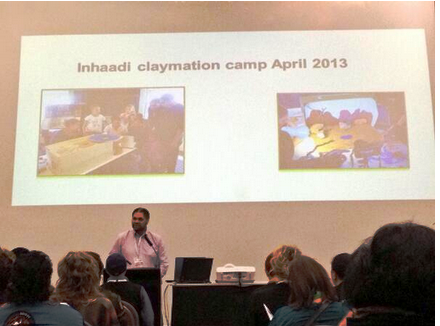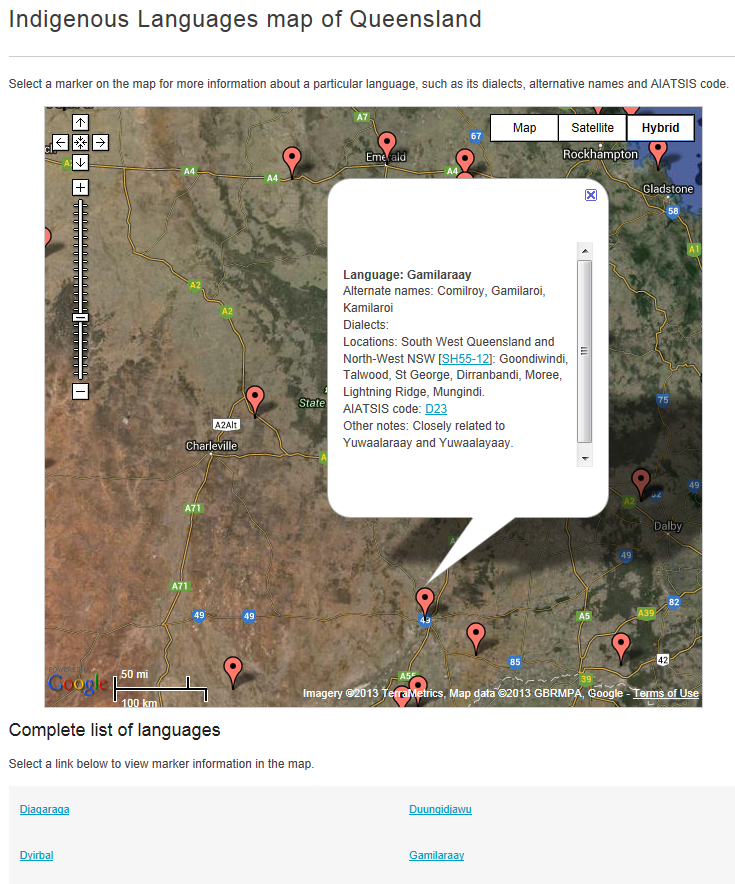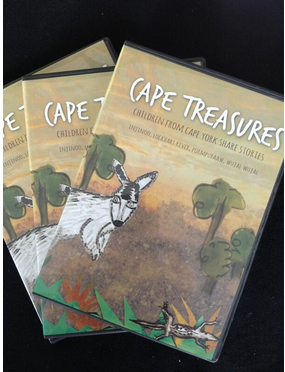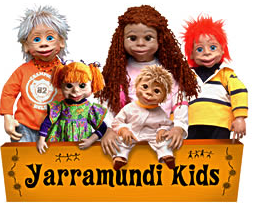Puliima National Indigenous Language and Technology Forum
By JOL Admin | 19 September 2013
Puliima hosted by the Miromaa Aboriginal Language and Technology Centre in Newcastle is a biannual event which is eagerly anticipated by language workers across Australia and this year's event did not disappoint. There was plenty of opportunities for catching up with like-minded people to share knowledge and ideas about Indigenous languages.

The program showcased 30 presentations on language revival, technology tools, software programs, community language programs and educational resources. Prior to the actual Forum, the organisers in partnership with the Victorian Aboriginal Corporation for Languages (VACL) hosted several training workshops on topics including Miromaa and other language tools as well as planning and practices relating to language revival.
Following the Welcome to Country, students from Thornbury Primary School (Melbourne) showcased some of their school language program with rousing performances of songs in language.
Daryl Baldwin from the Myaamia Nation of Oklahoma gave a personal account of his family's journey in the revival of Myaamia language and the impact of forced relocations of his people from their homelands. Daryl's presentation was inspiring to see how one family can play a pivotal role in bringing a language back to life in the broader community. This was followed by a second keynote from the Inhaadi Adnyamathanha Ngawarla Language and Culture Class (Port Adelaide, South Australia) who showcased their culture camp using claymation to create digital stories.

The Forum then broke into three strands of presentations on the key themes of Community, Education and Technology with a range of presentations over the two days. State Library of Queensland presented in the Technology strand showcasing the use of technologies to make our collections more discoverable for community language researchers. Topics included the 'tagging', recreating knowledge through the Retold Project as well as a sneak preview of our new Queensland Indigenous Languages Resources Map.

When finalised and 'live' on State Library's website, this resource will be a useful tool for finding items in the State Library's collections relating to specific languages - it is based on Google Map style platform with flagged locations giving hyperlinks to canned searches. Researchers can search by geographical location or name of language.

Renee and Tyler from the State Library's Cairns Office had a great display of resources as well as giving a presentation to highlight the work of the IKCs in collecting local language, local stories and local histories. They also promoted the new, improved IKC Blog. The Erub Dancers from Poruma were a highlight of the presentation and featured an encore later that night.
Wednesday night saw the inaugural Australia's Got Language Talent Contest which was showcase of amazing performances in song, dance and puppetry all in language!

Yarramundi Kids captured everyone's attention on Thursday morning and gave an insight into how language, culture and storytelling can be integrated into puppetry - a package that opens a range of opportunities in media and television to bring language alive to a wider audience.

The remainder of the day was an array of presentations featuring technology such as language apps, digital language learning and iTalk software as well as sessions focused more on the planning aspects of community language revival. An interesting approach was the Bureau of Meteorology incorporating Indigenous Weather Knowledge into their website - this will be quite informative and useful for schools with the new Australian Curriculum.
All in all a great Forum which showcased the many facets of technology and how it can be used in the documentation and recording of language as well as the development of resources for use in schools and communities.
Des Crump - Indigenous Languages Researcher, State Library of Queensland
Comments
Your email address will not be published.
We welcome relevant, respectful comments.